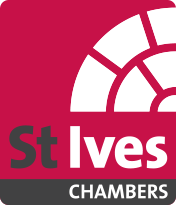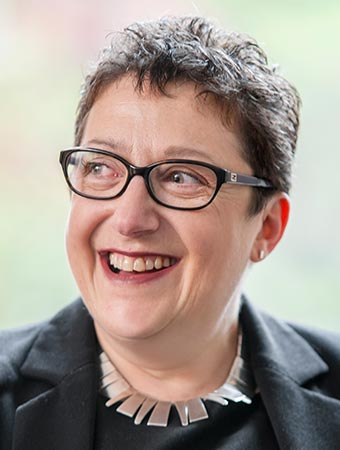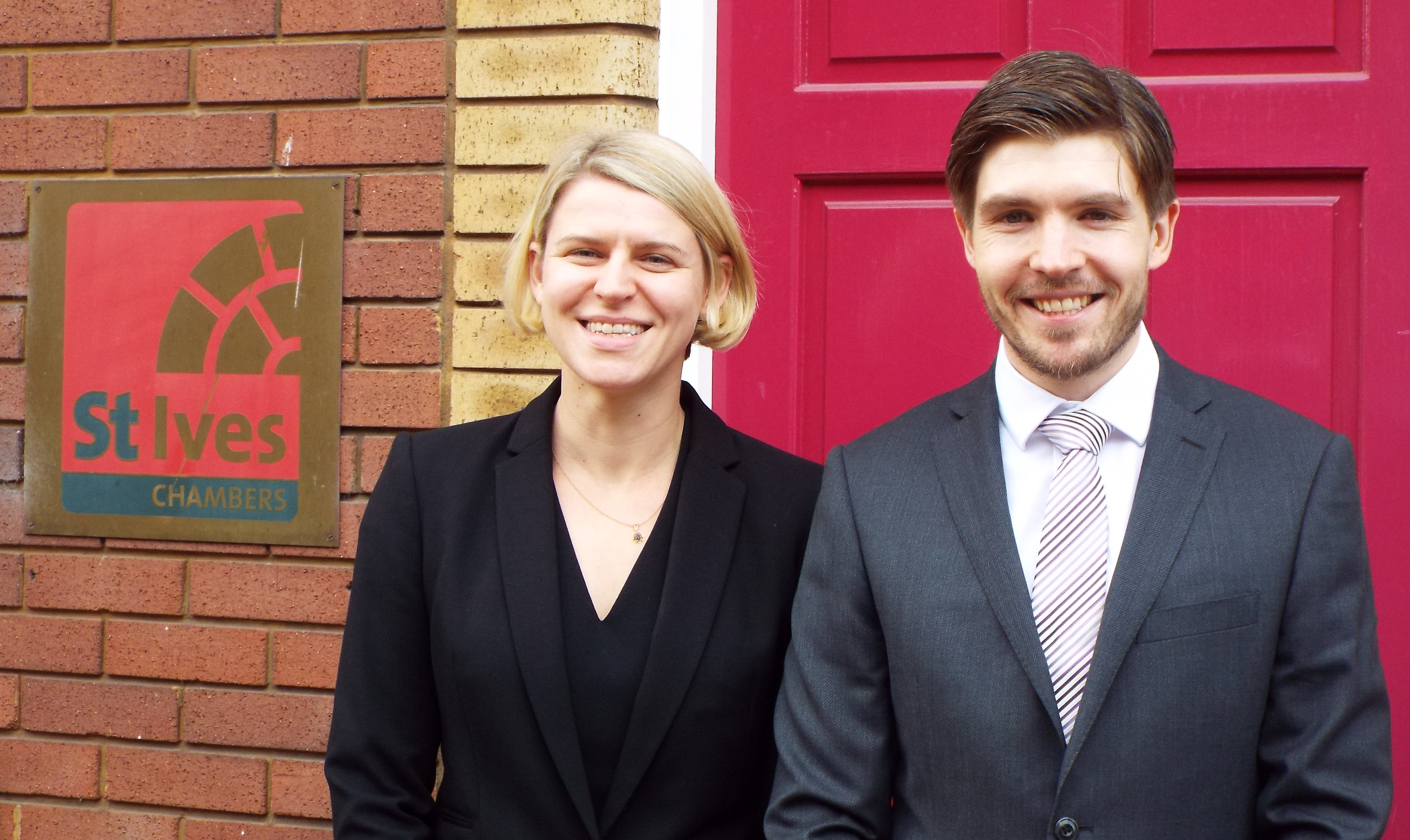St Ives launches specialist Dispute Resolution Team
St Ives Chambers are delighted to launch our new Dispute Resolution Team, which focuses on a number of different forms of Dispute Resolution within family law.
Head of Chambers, Jeremy Weston QC, said “I’m thrilled to announce the launch of this specialist group, one of the first in the country from a set of chambers outside of London. It demonstrates a real commitment to serving the needs of solicitors, both locally and nationally.
We are able to offer a complete suite of Dispute Resolution for both children and financial matters under one roof. We have one of the largest and most experienced specialist Dispute Resolution teams in the country. We are proud to offer practitioners who sit as members of the part-time judiciary at all levels, from Deputy District Judges to Deputy High Court Judges. No other chambers in the Midlands is able to offer financial and children arbitration by members of the bar with such experience. We are unrivalled.
Once again, we are proud to be at the forefront of innovative legal practice in Birmingham.
This new way of working is here to stay, but is brought into sharp focus by the current national COVID-19 crisis. We are pleased to be able to offer DR remotely through innovative video-conferencing technology.”
Any solicitor who wishes to discuss our Dispute Resolution offering, is invited to contact David Walters (david.walters@stiveschambers.co.uk).
Dispute Resolution at St Ives Chambers
Dispute Resolution (‘DR’) affords parties the opportunity to retain control of the process of their family law dispute and arrive at an outcome which is acceptable to them both, limiting both costs and delays. DR can be supplementary to court proceedings or, in many cases, a complete alternative. It is often far more cost effective than continuing to a final hearing at Court and can provide a very early resolution, even before proceedings have begun.
One major difficulty for parties seeking a resolution often lies in knowing what is “fair”. Acting as an independent expert, listening carefully to each side, one of our experienced practitioners can guide them through the process and either advise as to what is fair and suggest creative, practical solutions to hitherto intractable problems, or, in the case of an arbitration, determine the matters in issue.
St Ives Chambers is at the forefront of Dispute Resolution in the Midlands and is able to offer a diverse roster of practitioners. All have many years’ experience of advising and representing parties in family matters, whether Financial Remedies and/or Children Act cases, and many also sit as part-time judges in the Family Court or Financial Remedies Court. We are also able to offer both leading and junior counsel who are fully trained Arbitrators. We believe we offer one of the largest and most experienced Dispute Resolution teams in the country.
At St Ives we are able to host all parties in our Arbitration / Dispute Resolution Suite consisting of a large ‘hearing’ room, three private conference rooms and a break out area. Our barristers are also willing to travel to another suitable venue of the parties’ choosing. We are able to conduct hearings remotely, by telephone or video-link, if that is required, which is likely to be of particular assistance while the special public health measures invoked as a result of COVID-19 remain in force.
In light of the additional difficulties that COVID-19 is creating within the court system, the ability to deal with cases remotely and quickly, on a date agreed between the parties and before a tribunal chosen by them, is more valuable than ever.
We offer the following services:
· Private FDR and Early Neutral Evaluation in Financial Remedy Proceedings
· Private Dispute Resolution and Early Neutral Evaluation in Children Act Proceedings
· Arbitration
Private FDR and Early Neutral Evaluation in Financial Remedy Proceedings
The Financial Dispute Resolution Hearing (‘FDR’) is a key hearing in Court proceedings, providing the parties with an opportunity to resolve all remaining issues between them. It is a meeting for the purposes of discussion and negotiation.
The essential feature of an FDR is that the parties will have the opportunity to put their case to a Judge, if necessary, and ask for a realistic and independent indication as to what would be a fair settlement and what the Court would be likely to order if the matter were not resolved by agreement.
Unfortunately, the pressure on the Courts is such that the parties often have to wait many months to secure a hearing date, during which time they remain in financial limbo. Sadly, sometimes a Judge with a busy list simply does not have sufficient time to read and evaluate all of the documentation filed in the case; on occasion this can result in a very ‘broad brush’ approach being taken, leaving some parties frustrated and disappointed.
Judges have increasingly recognised the benefit of private FDRs led by an experienced practitioner acting as a “judge” who has far more time to look in detail at the case and assist in addressing any sticking points. Since the outbreak of Covid-19, Mr Justice Mostyn has urged that parties should be encouraged to consider private FDRs.
A private FDR avoids potentially long delays and secures a tribunal with sufficient time and expertise to assist the parties in reaching an agreement that can then be made into a final Court Order. The parties will be able to jointly choose their “judge”. Given that the majority of cases end in agreement, the parties are likely to save significant costs and, equally importantly, spare themselves the stress of continuing litigation.
It is a popular misconception that private FDRs are only appropriate in “big money” cases. This is not the case. They are equally effective where resources are scarce. They shorten litigation thereby reducing cost. Early neutral evaluation is not confined to divorce cases. This route is also available to parties in cohabitee and property disputes.
A Private FDR can be substituted for a Court FDR by agreement. However, there is no reason why the parties should wait until court proceedings have been initiated, as they can seek an early neutral evaluation, saving the front loaded costs of issuing proceedings.
If budgets are tight other options can be offered to reduce costs. For example, St Ives Chambers is piloting a scheme where couples wishing to achieve a negotiated settlement can obtain a joint written advice or meet with a barrister at an early stage in conference to identify a fair order. The instruction can be limited to an indication on one key issue.
Solicitors may choose to represent their clients themselves, avoiding the cost of instructing counsel.
In summary a Private FDR / Early Neutral Evaluation provides:
1. an early date at your convenience;
2. an expert in the field;
3. an expert who has read all of the papers;
4. guidance as to what is a fair settlement and as to what order is likely to be made if the matter proceeds to a final hearing; and
5. sufficient time to negotiate and conclude an agreement.
Practitioners undertaking Private FDRs and Early Neutral Evaluations in Financial Remedy Cases
· Nicholas Allen QC (Family Law Recorder and Arbitrator)
· James Tillyard QC (Family Law Recorder and Arbitrator)
· Jayne Mullen (Specialist Financial Remedy Judge)
· Andrew Day (Family Law Recorder and Arbitrator)
· Matthew Maynard (Family Law Recorder and Arbitrator)
· James Picken (Family Law Recorder)
· Charmian Jackson (Deputy District Judge)
For further information and assistance, please contact practice manager David Walters (david.walters@stiveschambers.co.uk).
Private Dispute Resolution and Early Neutral Evaluation in Children Act Proceedings
Dispute Resolution can be particularly effective in disputes relating to children. The court process is notoriously slow in proceedings relating to children, often taking many months before the Court is in a position to make a determination, even on an interim basis.
At St Ives Chambers we recognise that there is nothing more important to parents than the welfare of their children. We also recognise that even a brief delay in getting the arrangements right is too long. With the assistance of an experienced practitioner of their choosing who will listen to each party’s concerns and offer an opinion as to the likely view of the Court at final hearing, parents can work through the practical day-to-day arrangements for their children and begin implementing them.
An early resolution reduces the opportunity for conflict to escalate, enabling the parties to resolve all issues before they cause permanent damage to their parental relationship. An early resolution is particularly important where children have, for whatever reason, stopped seeing one of their parents.
All of our team members offering DR in children case are part-time members of the judiciary, ranging from Deputy High Court Judges, to Recorders and Deputy District Judges. This represents a pool of judicial experience unrivalled in other sets of chambers. It permits parties early and neutral access to an experienced judicial evaluation of their respective positions.
Private Dispute Resolution can take place at any stage in children cases, before or after CAFCASS reports have been received, provided there are no safeguarding concerns. There is no reason why the parties should wait until proceedings have been initiated. They can seek an early neutral evaluation at any stage saving the front-loaded costs of issuing proceedings.
If budgets are tight other options can be offered to reduce costs. For example, St Ives Chambers is piloting a scheme where couples wishing to achieve a negotiated settlement can obtain a joint written advice or meet with a barrister at an early stage in conference to identify a fair order. The instruction can be limited to an indication on one key issue.
Solicitors may choose to represent their clients themselves, avoiding the additional cost of instructing counsel.
In summary, private Dispute Resolution / Early Neutral Evaluation provides:
1. an early date at your convenience;
2. an expert in the field;
3. an expert who has read all of the papers;
4. guidance as to suitable arrangements for the children of the family and as to what order is likely to be made if the matter proceeds to a final hearing; and
5. sufficient time to negotiate and conclude an agreement.
Practitioners undertaking Dispute Resolution and Early Neutral Evaluations in Children Cases:
· Jeremy Weston QC (Family Law Recorder)
· Elizabeth Isaacs QC (Deputy High Court Judge)
· Jane Crowley QC (Deputy High Court Judge and Arbitrator)
· James Tillyard QC (Deputy High Court Judge and Arbitrator)
· Michelle Brown (Family Law Recorder)
· Timothy Bowe (Family Law Recorder)
· Matthew Maynard (Family Law Recorder and Arbitrator)
· James Picken (Family Law Recorder)
· Charmian Jackson (Deputy District Judge)
· Sarah Fahy (Deputy District Judge)
For further information and assistance please contact practice manager David Walters (david.walters@stiveschambers.co.uk).
Arbitration
St Ives Chambers was the first set of chambers in Birmingham and the West Midlands to offer this innovative service, through Andrew Day and Matthew Maynard, the region’s first family barristers to qualify under the Institute of Family Law Arbitrators’ scheme. They are now joined by James Tillyard QC and Nicholas Allen QC in offering the service in Financial Remedy cases; Jane Crowley QC offers arbitration in Children Act cases.
Arbitration offers parties the opportunity to opt out of the Court process completely and obtain a final, binding determination from a jointly appointed, family law specialist. Unlike in a private FDR the outcome is decided by the Arbitrator and intended to be final.
Arbitration offers an affordable and reliable alternative to ensure that disputes are resolved quickly, fairly and at proportionate cost. The benefit to the parties of arbitration is that the determination is expected to be final. The parties are also able to agree the level of detail and disclosure they wish to provide. Another advantage of arbitration is that, unlike Court proceedings, it is absolutely confidential with no access to the press.
The parties can choose their arbitrator and even choose to limit the issues to put before the arbitrator at any one stage. They may, for example, ask the arbitrator to rule on a specific point, such as the value of a family business or the treatment of an inheritance, saving the huge expense of litigating the whole case when the treatment of that one asset is likely to determine the outcome.
In summary, arbitration offers numerous significant benefits when compared to traditional litigation, including the opportunity for the parties to:
· handpick an experienced family law specialist arbitrator to deal with their dispute continuously from beginning to end;
· choose where, when and on what timetable their dispute should be determined;
· set their own procedural and evidential parameters, including as to:
- the nature and extent of the financial disclosure required;
- and the nature and extent of any hearing;
· include as much or as little material in the bundle as is appropriate to the case;
· deal singly with discreet issues, at either an interim or final stage; and
· agree how any issues regarding costs should be approached by the Arbitrator.
Practitioners undertaking arbitration
· Nicholas Allen QC (Family Law Recorder and Arbitrator)
· James Tillyard QC (Deputy High Court Judge and Arbitrator)
· Andrew Day (Family Law Recorder and Arbitrator)
· Matthew Maynard (Family Law Recorder and Arbitrator)
· Jane Crowley QC (Deputy High Court Judge and Arbitrator)
For further information and assistance please contact practice manager David Walters (david.walters@stiveschambers.co.uk) or the Arbitrators directly. Please copy any case specific correspondence to the other party or their representative.
For further information on arbitration generally, or to download guides for practitioners and lay clients and other resources, please visit the IFLA website.





